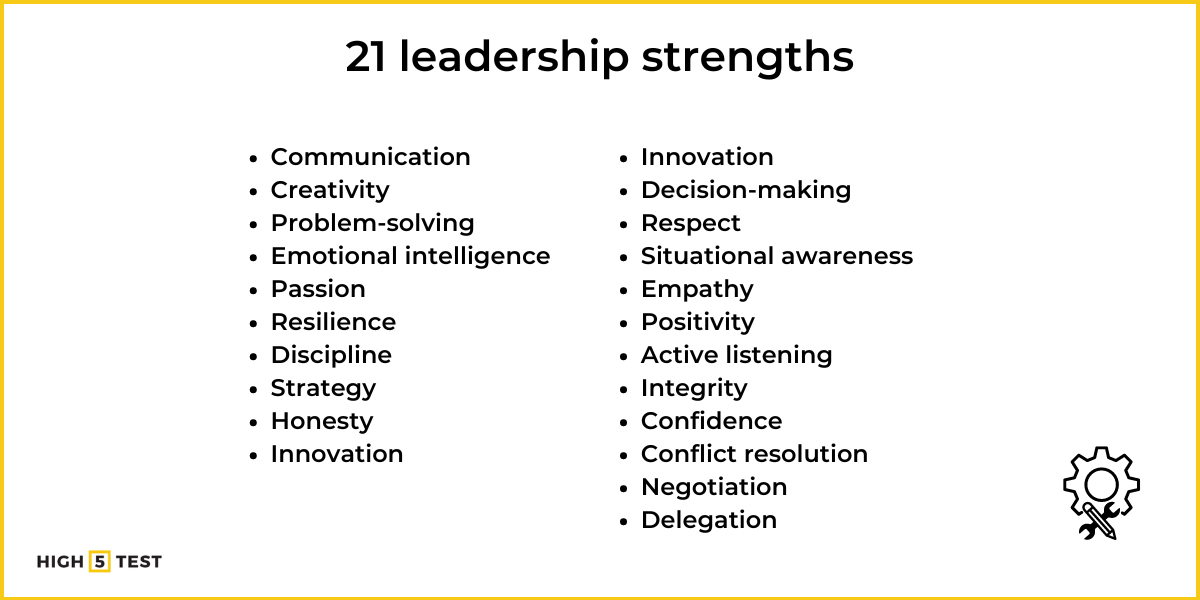Today’s leaders navigate a world that is continually changing at an unprecedented rate of speed. Rapid advancements in technology, products, services, consumer culture, social dynamics, and employment trends provide ongoing opportunities for innovation but also require organizations to adapt to perpetually changing conditions (1).
In response to the exponential rate of change currently faced by modern organizations, the concept of leadership has shifted dramatically over the past decade. In the past, leaders operating within a relatively stable environment could reliably pass down decisions and directives in a “top-down” approach. Today many leaders have moved away from this hierarchical leadership style in favor of a more collaborative approach, which is often paired with a culture of employee empowerment and a “flatter,” less hierarchical structure.
When leaders heighten collaboration, de-emphasize hierarchy, and empower staff, decisions can be implemented more quickly, and leaders are more able to draw out wisdom and expertise across their organization. The result is a more responsive, agile organization that is better equipped to adapt to a constantly shifting environment.
To be successful in this “New Era of Leadership,” it is critical that leaders possess a comprehensive understanding of their unique strengths and leadership styles, including the type of work that energizes them and provides a personal sense of purpose. Leaders who possess this comprehensive understanding of themselves in relation to the work they do and the teams they lead are better equipped to apply their strengths and passions in their role as a leader, while also leveraging the strengths and passions of others.
Awareness of one’s strengths and motivational factors also allows a leader to more reliably predict the areas in which they are not likely to excel. Using the strengths-based leadership approach, leaders collaboratively outsource work in these areas. For example, a leader may learn that he or she is a gifted communicator, who draws energy from inspiring others. This same leader may also discover that he or she does not have a strong interest or aptitude as a creative innovator.
Later on, when this leader faces the dual task of innovating a new business strategy and communicating the strategy across the organization, he or she may confidently take on the communication aspect of the work but recruit another leader with a strong creative side to oversee the creation of the strategy.
This article describes twenty-one strengths that universally serve effective leadership. As you read, bear in mind that no one leader is equally strong in every leadership strength. It is normal for any given leader to be strong in some areas, and not as strong in others. Understanding your core leadership strengths allows you to build and capitalize on your strengths and identify methods to account for areas that are not strengths – i.e. leadership “weaknesses.”
What are leadership strengths?
Leadership strengths are skills and traits that support a leader’s effectiveness. For example, leadership strengths include any skill or trait that enhances a leader’s ability to organize teams, set goals, develop strategies, address emergent issues, and build talent and motivation within employees. To build talent it is helpful to take a talent assessment test to determine its strengths and ways to develop them.
Leaders can gain insight into their unique leadership strengths through a variety of methods. Some leaders use qualitative and quantitative surveys of their peers and direct reports for a clearer understanding of the traits and behaviors that enhance or detract from their ability to lead.
Leaders can also use self-assessments, such as the HIGH5 Strengths Test to gain a better understanding of their leadership strengths and orientation. The HIGH5 Strengths Test is a scientifically validated psychometric test designed to identify an individual’s “Top 5” signature strengths. In addition to providing your “Top 5” signature strengths, HIGH5 results include:
- actionable guidance
- hands-on development insights
- a summary of weaknesses as watch-out areas
- best partner recommendations for collaboration and delegation
- career suggestions that will allow you to begin the immediate application of your results
The HIGH5 Strengths Test is available online and takes about 20 minutes to complete from start to finish..
21 examples of leadership strengths in the workplace
- Communication
- Creativity
- Problem-solving
- Emotional intelligence
- Passion
- Resilience
- Discipline
- Strategy
- Honesty
- Innovation
- Decision-making
- Respect
- Situational awareness
- Empathy
- Positivity
- Active listening
- Integrity
- Confidence
- Conflict resolution
- Negotiation
- Delegation

Enhance your leadership capabilities effectively by taking the HIGH5 test. This assessment reveals critical leadership strengths, such as self-awareness and emotional intelligence. Completing the HIGH5 test provides valuable insights to refine your leadership approach, making it more adaptable and responsive to your team’s needs. Use these insights actively to develop a nuanced and effective leadership style.
Communication
Effective communication involves clearly conveying ideas and instructions, and ensuring that team members understand their roles and responsibilities. Effective communication also includes active listening and the ability to provide feedback that fosters growth and engagement.
Creativity
Creativity in leadership refers to the formation of innovative ideas and solutions to challenges. Creative leaders think outside the box and foster a culture of experimentation, tolerance for mistakes, and continuous improvement.
Problem-solving
Problem-solving is the ability to identify issues, identify both causal factors and potential solutions, and implement the best course of action to solve the problem and apply learning to prevent future recurrence. Problem-solving requires critical thinking and the ability to function under pressure.
Emotional intelligence
Emotional intelligence is the ability to understand and manage your own emotions, as well as recognize and influence the emotions of others. Emotional intelligence is a critical factor in building and maintaining trusting relationships and a positive work environment.
Passion
Passion is the intense enthusiasm and dedication a leader brings to their role. Genuine passion is contagious; it inspires and motivates teams to pursue common goals with energy and commitment.
Resilience
Resilience is the ability to remain focused on the attainment of goals, even in the face of challenges and setbacks. Resilient leaders are not immune to stress but remain committed to maintaining a positive and constructive attitude through adversity.
Discipline
Discipline in leadership requires consistent adherence to rules and standards and dedication to efficient task completion. Discipline requires self-control and the ability to maintain focus and progress towards long-term objectives.
Strategy
Strategic thinking involves planning and decision-making that align with long-term goals. Strategization requires foresight, an understanding of internal and external trends, and the ability to navigate complex situations.
Honesty
Honesty hinges on truthful and transparent communication. Leaders who are honest in their dealings with team members and stakeholders build credibility, a crucial aspect of effective leadership that maintains motivation and buy-in from team members.
Innovation
Innovation is the drive to develop new and improved products, services, or processes. Innovative leaders foster a culture that values creativity and supports the sharing and implementation of novel ideas.
Decision-making
Effective decision-making involves evaluating information, considering various options, and choosing the best course of action based on the organization’s priorities and interests. Effective decision-making requires confidence and the ability to make timely, informed choices that include the right parties.
Respect
Respect in leadership means valuing the contributions and perspectives of all team members and conducting oneself in such a way that reflects this regard. Respect is a key component of a collaborative and inclusive work environment.
Situational awareness
Situational awareness is the ability to understand and anticipate the relevant dynamics of your environment. Situational awareness allows leaders to make informed decisions by recognizing potential opportunities and threats.
Empathy
Empathy is the capacity to understand and share the feelings of others. Empathy enhances relationships and supports effective communication by addressing the authentic needs and concerns of team members.
Positivity
Positivity involves maintaining an optimistic outlook and encouraging a can-do attitude within the team. A positive attitude is needed to maintain morale and overcome challenging and distressing obstacles.
Active listening
Active listening refers to the ability to fully concentrate on, understand, and respond appropriately to what others are saying. Active listening builds trust and ensures that all team members feel heard and valued. Active listening supports productivity by ensuring messages are received as intended and prevents unnecessary conflict by reducing the risk of misunderstandings.
Integrity
Integrity is adhering to strong moral and ethical principles. Integrity ensures consistency between a leader’s actions and their values, promoting trust, respect, and ethical behavior.
Confidence
Confidence is the belief in one’s abilities and decisions. Confidence fosters trust and inspires teams to support a leader’s vision or plan.
Conflict resolution
Conflict resolution involves addressing and managing disagreements in a constructive manner that leads to a lasting solution. Effective conflict resolution relies upon effective communication, critical thinking and problem-solving skills.
Negotiation
Negotiation is the process of reaching mutually beneficial agreements through dialogue and compromise. It involves understanding both sides and finding win-win solutions.
Delegation
Delegation is the assignment of tasks and responsibilities to the right team or individual. Effective delegation involves assigning tasks in accordance with the skills required. Skillful delegation allows leaders to focus on higher-level strategic activities while empowering employees and building trust.
Understanding leadership strengths in the workplace
Leaders who know their strengths and the type of work that energizes them are well-positioned to use what modern leadership theorists refer to as “the strengths-based leadership approach.” According to strengths-based leadership experts Tom Rath and Barry Conchie, strengths-based leadership maintains that organizations operate at their maximum performance when leaders and individual contributors across an organization are empowered to do the work that they do best (2).
It is important to note that strengths-based leadership is grounded in positive psychology, the study of human flourishing; for this reason, it is not limited to measuring only what an individual is “good at” (3). Strengths-based leadership also seeks to discover the kind of work that an individual experiences as intrinsically energizing, rewarding, and meaningful (2).
When the focus of a leader’s work aligns with their unique skills and passions, leader engagement and expertise are maximized over time (4). This concept allows for the reality that no one leader can “be everything.” With this understanding, leaders are encouraged to play to their strengths and passions as much as is feasible within their role and organization.
This concept leads us to why a culture of collaboration and empowerment is so important when using the strengths-based leadership approach. When an organization acknowledges that no one person can be the expert in everything, the ability to divide work according to skill and interest across a diverse team becomes increasingly important. For this reason, strengths-based leadership and the use of assessments including the HIGH5 Strengths Test can be used by leaders at all levels of an organization, as well as individual contributors. When employees at all levels of an organization are empowered with the knowledge of their own strengths – and each other’s – tasks and projects are more easily assigned to the person most suited to the nature of the work (3).
In sum, every leader possesses leadership strengths and weaknesses in varying degrees. Strengths-based leadership focuses on identifying, building, and maximizing an individual’s strengths and innate motivational drives (2). Though weaknesses are addressed, this approach asserts that energy and focus is most effectively channeled into the development of strengths rather than weaknesses. Strengths-based leadership acknowledges that while weaknesses can be improved, they can also be overcome through other means, such as delegation and collaboration.
Applying a strengths-based leadership approach becomes more intuitive with insights from HIGH5. By identifying your strongest attributes, you can better understand the traits that underpin your leadership efficacy and the unique strengths that you bring to your organization or team.
3 examples of strengths-based leadership in practice
The following three examples demonstrate how a strengths-based leadership approach can be used in real life:
- A sales team leader accurately “reads the room” and determines that the team is showing signs of duress from an unusually high workload and tight deadlines. The intensifying pressure within the team is creating conditions that often contribute to conflict. Sure enough, the team leader begins to notice an increasing number of tersely-worded emails and minor bickering among the staff. In response, the team leader sets up a team session that will include the entire team, the team leader, and human resources. At the session, the team leader acknowledges current challenges and invites employees to express their concerns. This part of the session provides an opportunity for team members to voice challenges, and receive and lend support. The session wraps up with an exercise led by human resources, which allows employees to review and practice conflict management and de-escalation techniques. This example describes how two leaders within an organization may play to their strengths to successfully leverage situational awareness and conflict management.
- A supervisor has identified a need for a knowledge management system for a group of customer service representatives (CSRs). This knowledge management system would provide CSRs with an easy-to-use repository of common customer issues, solutions, and email or chat responses. The supervisor concludes that the system would be most effective if developed by an employee who is currently doing the work of a CSR. After evaluating potential candidates, the supervisor asks an experienced CSR with strong organizational and time management skills to take on the project. As an added advantage, this employee enjoys creating customer-centric emails that incorporate the company’s brand voice. This example describes how a leader may successfully leverage delegation when leading a team.
- An executive has noticed that one of the company’s best team leaders is slipping. The individual is making novice mistakes, and often seems forgetful and distracted during meetings. Rather than immediately reprimand the team lead, the executive invites the team leader to talk openly in a neutral setting. At the meeting, the executive shares his observations that the team lead seems to be struggling, and asks what kind of support might help the team lead get back on track. In the meeting, the team lead shares that they have become increasingly exhausted balancing work with caring for a family member who recently suffered a serious injury. The executive works with the team lead to develop a plan that would allow the team lead to take extended sick leave to care for their injured relative, temporarily delegating vital work across the department. This example describes how a leader may successfully leverage empathy when leading a team.
How do you identify your leadership strengths?
Identifying your leadership strengths is crucial for personal and professional growth. Below are five methods to help you discover your strengths:
- Self-assessment tools: Utilize tools like the HIGH5 Test to gain insights into your unique strengths.
- Survey others: Seek observations from colleagues, mentors, and team members to understand your abilities from various perspectives.
- Reflect on past successes: Analyze your past achievements and identify the skills and qualities that contributed to your success.
- Observe your reactions: Pay attention to the tasks and activities you naturally gravitate towards and excel in, as these often indicate your strengths.
- Professional development programs: Engage in leadership training and development programs that provide assessments and opportunities to discover and hone your strengths.
How do you develop further your leadership strengths?
Developing your leadership strengths is a continuous process that requires intentional effort and practice. Below are strategies leaders can use to continually assess and develop their leadership strengths.
- Take a leadership skills assessment to gain insights and improve your leadership.
- Seek feedback: Regularly ask for feedback from peers, mentors, and team members. Ask for specific actions you could take to improve.
- Engage in continuous learning: Participate in leadership training programs, workshops, and courses that build upon your identified strengths.
- Practice self-reflection: Each time you complete an initiative or project, set aside time to reflect on your experiences to understand what worked well and what could be improved. Consider inviting others to join the reflection as a means of capturing learnings for future application.
- Set development goals: Establish specific, measurable goals to enhance your leadership capabilities and track your progress over time.
- Mentorship and coaching: Set up a schedule to work formally or informally with a mentor or leadership coach who can provide guidance, support, and advice on developing your leadership strengths further. Coaching and mentoring are often most effective when one to three areas of focus are identified at the outset of coaching. For example, if your aim is to build on your strengths relating to negotiation, a coach or mentor can help you reflect on and learn from your negotiation experiences as a means of building on your skills as a negotiator.
Pro Tip From HIGH5
Leadership excellence is a journey of continuous improvement. Revisit your leadership strengths periodically with the HIGH5 test, ensuring your growth aligns with your goals and adapts to evolving leadership challenges.
How do you showcase your leadership strengths in a job interview or a resume?
Effectively showcasing your leadership strengths in a job interview or on a resume can help you obtain leadership roles in your chosen profession. To demonstrate your leadership strengths within a job search, consider the strategies below:
- Highlight relevant experiences: On your resume, clearly detail specific instances where you successfully demonstrated a leadership strength, using measurable achievements.
- Use the STAR method: In job interviews, use the STAR method to tell a story about how you have used one of your strengths to deliver results for your organization. S: Describe the SITUATION. T: Identify how you performed a TASK by applying a strength. A: Explain the ACTION you took to perform the task. R: Summarize the RESULT of the action you took on the situation.
- Tailor to the job description: Align your strengths with the key responsibilities and requirements mentioned in the job description, emphasizing how your skills meet their organizational needs.
- Showcase soft skills: Highlight and demonstrate essential leadership soft skills such as communication, empathy, and decision-making on your resume and during the interview.
- Prepare success stories in advance: Be ready to discuss past leadership experiences that illustrate your ability to lead teams, overcome challenges, and achieve goals effectively.
Differences between leadership strengths and employee strengths
Both leaders and individual contributors benefit from a strengths-based approach. That said, some strengths are particularly relevant to leadership roles. For example, relevant leadership qualities include long-term vision, strategic thinking, the ability to motivate others, conflict resolution, efficient delegation, and tolerance for uncertainty. Certain“soft skills” that are pertinent for individual contributors are also important for leaders.
Pro Tip From HIGH5
Words like “empathy” and “adaptability” aren’t just buzz words; they’re foundational elements that can significantly enhance your leadership effectiveness. The HIGH5 test is a tool designed to identify these critical strengths within yourself and provide actionable insights on how to leverage them.
By using your HIGH5 results to pinpoint these strengths, you can develop tailored strategies that apply directly to real-world leadership scenarios, thus elevating your leadership approach beyond the conventional.
Leadership strengths FAQ
What are the 15 leadership qualities?
While there are a plethora of leadership skills you can focus on attaining, 15 of them are crucially important. These 15 leadership qualities are: honesty or integrity, confidence, being able to inspire others, staying passionate, communication, decision-making accountability, delegation, creativity and innovation, empathy, resilience, interpersonal skills, humility, emotional intelligence, transparency, and long-term thinking.
What are the 5 qualities of a good leader?
Great leaders have many qualities that set them apart from the crowd. First of all, they are great communicators. They know how to inspire and connect with their team. The best leaders are also highly innovative and creative, which helps their companies get competitive advantages.
Empathy and interpersonal skills are needed to be a good leader, too. Being able to effectively make decisions and adapt to an ever-changing environment is crucial for leaders as well.
How do you write leadership strengths?
When crafting your resume, adding some of your leadership skills is a good idea. You can list some of your top leadership skills when describing how you positively impacted your prior team.
Note which skill you used and how that skill helped you benefit your team. Try including adaptability, delegation, communication, trustworthiness, creativity, and decision-making in your leadership skill list. They are especially positively viewed by others.
When addressing FAQs about leadership strengths and weaknesses, consider how your unique leadership profile, as outlined by your HIGH5 results, aligns with these common inquiries. This insight can guide your responses and leadership development strategy.
How to find a person’s weakness?
Identify a person’s weakness by observing their performance, seeking feedback, and conducting self-assessments. These methods help highlight areas where improvement is needed.
How do you address personal weaknesses?
Address personal weaknesses by acknowledging them, seeking constructive feedback, and creating a targeted development plan. Focus on continuous learning and practice to turn weaknesses into strengths.
Conclusion
Due to ongoing rapid societal change, today’s leaders are tasked with adapting to a new era of leadership, one that requires organizations to accurately evaluate change and respond with unprecedented agility. To rise to this task, many modern leaders are moving towards a strengths-based leadership approach that allows leaders to identify, build on, and apply their current strengths and motivational factors to their work as much as possible.
When strengths-based leadership concepts are implemented organization-wide, teams work together collaboratively as they play to their own strengths, and account for each other’s weaknesses. Focusing on strengths allows organizations to conserve energy that would otherwise be spent on remedial training, and capitalize on the high performance that comes as a result of leaders and teams doing what they do best!
The first step in integrating a strengths-based leadership approach in your own leadership journey is to gain a comprehensive understanding of the innate abilities and motivational factors that comprise your unique strengths. A great starting point is the HIGH5 Strengths Test, which will identify your “Top 5” leadership strengths, along with actionable strategies to apply these strengths to your day-to-day and long-term activities as a leader.
The HIGH5 Strengths Test is available for both individuals and teams. Take the test, or learn more here. A clear understanding of leadership skills is the first step toward maximizing every individual’s potential, leading to growth in businesses, communities, and nations.
References:
- Kotter, J. Akhtar. V., and Gupta, G. (2021). Is your organization surviving change – or thriving in it? MA: Harvard Business Review.
- Rath, T., & Conchie, B. (2008). Strengths based leadership: Great leaders, teams and why people follow. NY: Gallup Press.
- Seligman, M. E. P. (2011). Flourish: A visionary new understanding of happiness and well-being. Free Press.
- Brim, B. and Asplund, J. (2009). ‘Driving Engagement by Focusing on Strengths,’ Gallup Business Journal.






